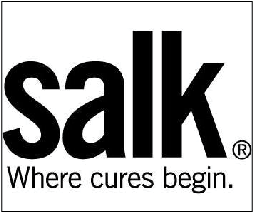There is a serious medical problem that is too little acknowledged: organs are in high demand. Every ten minutes, someone is added to the national transplant waiting list, and there are simply not nearly enough donor organs to meet this need.
Recently, a group of scientists at the Salk Institute in California attempted to solve this problem by developing a way to grow human organs inside of pigs, brewing up a storm of controversy (and some hysteria) about the prospect of “human-animal hybrids.”
Very few people doubt this has potential benefits, but many doubt whether it is ethical. I believe it is both. The objections raised as ethical concerns are dubious, and are based either on a lack of understanding of what the experiment actually did, or on gut feelings and reactions which can’t be rationalized morally.
Many people find the idea of human-animal chimeras deeply unsettling, but “unsettling” is simply not a good enough argument for impeding medical advancements that can save thousands of lives.

The scientists, who reported their research in the journal “Cell,” are hoping to get fully functioning human organs to grow inside other animals, which could solve the organ shortage and save thousands of lives. Others have raised ethical concerns around the implications of mixing human DNA with those of other animals. These fears are mostly misguided, and the positive potential of this advancement far outweighs the negatives.
There is certainly a crucial need for ethical discussions as humanity advances into science-fiction levels of technology. However, these discussions must be based on an informed views. Some media outlets have published articles along with creepy images of half-pig-half-human faces, which do nothing but promote misinformation about what these results actually mean. No, scientists did not create half-pig, half-human creatures, or make human in a pig’s body.
We must also be aware of problems with animal abuse and well-being. But the prospect of growing transplantable human organs inside animals raises no new revolutionary ethical concerns.
First of all, no animal was actually born, and the embryo itself contained only .001 percent human cells. Certainly, the hope is to increase that number enough to create a fully functioning organ, but in the context of this research the goal is focused on specific organs that are needed for transplantation, such as the kidney or liver. There is no way the animal would develop human cognition, as the cells will not form brain tissue.
The argument that it is wrong because it is unnatural is also flawed, as most “unnatural” arguments in ethics tend to be. These kinds of concerns often have religious roots, or are based on the idea that humans have a dignity separate from other animals that will somehow be undermined.
Is that really a good reason to hold back research that can save lives? Surely the more human lives we can save, the more dignity we will have. In any case, our aversion to the unnatural is purely a matter of our emotional psychology, and not valid reasoning. That is not to say we shouldn’t have these discussions, but that these discussions should be based on critical reflections rather than gut feeling or traditional values.
As with any medical science research, there will be strict institutional oversights in place. We must critically reflect on our deeply rooted repulsion toward the idea of transplantable human organs inside an animal, and realize that avoiding this unexplainable discomfort is less important than saving lives and improving our scientific understanding.








